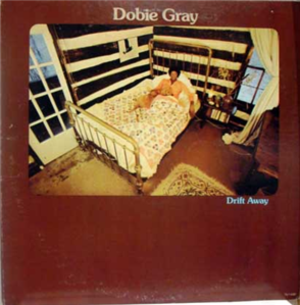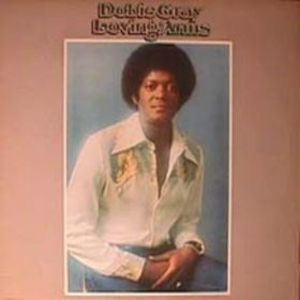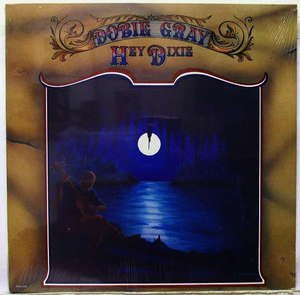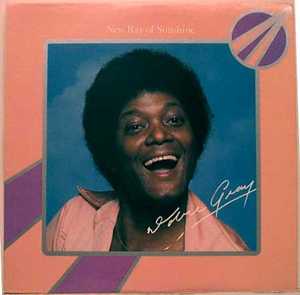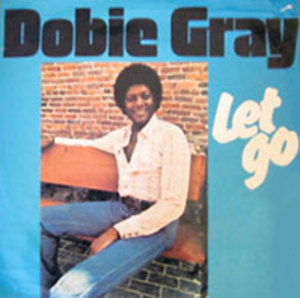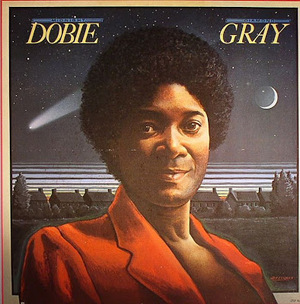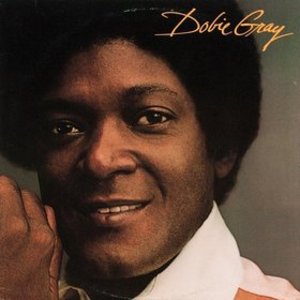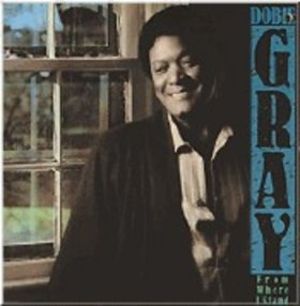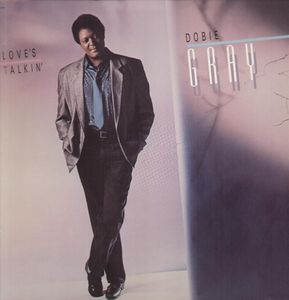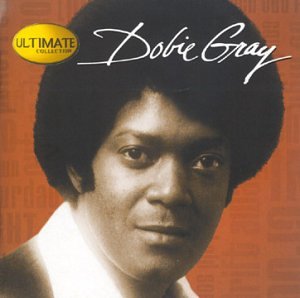
YEARS AGO WITH DOBIE GRAY...
Thanks to David Wild's introducing me to my first editor at The Huffington Post, I have been a weekly contributor to this online titan's entertainment page for over five years. My first post, on April 5th, 2008, was a video premiere and personal account of the making of my video "Home," a song from my album Summerland. It was a kind of plea to the Bush administration to end the wars and seriously attend to post-Katrina New Orleans, and it also was a duet with my friend, the late Dobie Gray, whose monster hits "Drift Away" and "The 'In' Crowd" left giant footprints on pop music history. Since then, I have posted music business reflections, anecdotes, reviews, video and audio premieres, rants, wiseassery, obituaries, and most of the time, interviews.
Throughout the many hundreds of interviews that became posts, I was blessed with quality one-to-one time with almost all of my musical heroes, been educated by many of them about music, their interests and perspectives on the world, and I even developed friendships with some of these artists and their handlers. But with the recent passing of Phil Ramone, someone I interviewed twice on HuffPost (he actually schooled me a little on how to interview), I thought about that handful of artists who I still would love to get the scoop from, you know, if everything stopped tomorrow. I suddenly was saddened that I had never interviewed Dobie, who was not only my cohort on "Home," but also a friend and frequent victim of compilations I produced at various labels. Then I remembered that, indeed, I actually had interviewed him back in 2007 when Hip-O executive Thane Tierney green-lighted a "complete" box set of his works from 1969 to 1979.
So to celebrate an anniversary of sorts and his appearance on my first post in 2008, presented here is that interview from 2007, and I believe it might be Dobie's last for the U.S. I also included the video he eventually appeared in, it being the second cut intentionally made to include footage of him. Thank you Dobie Gray from wherever you're reading this, and thank you Huffington Post and everyone for peeking at my posts after all these years. Cheers to you and to the next five years...
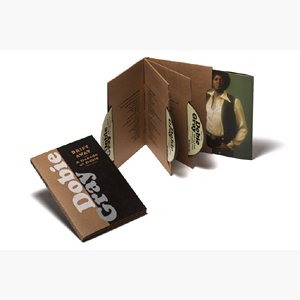
A 2007 Interview with Dobie Gray
Mike Ragogna: Dobie, where did it all begin?
Dobie Gray: I grew up in a little place called Brookshire, Texas, which is outside of Houston, and it's fast becoming a part of Houston now. We were sharecroppers--cotton, corn, we raised our own produce, pigs, turkeys, chickens and pecans. Then we moved to the big city of Houston when I was eleven. I lived in Houston from eleven until I was almost seventeen, at which point I moved to Los Angeles where I stayed with relatives and went to school.
MR: When you were in Los Angeles, is that when your musical career kicked in?
DG: Exactly. I started washing dishes at a place called One Thousand One Nights. I had gone to see Sonny Bono, who, at the time, was with Specialty records. They had Sam Cooke, Ruth Brown and everybody. Sonny had a spot on the radio that said, "If you think you can sing as good as so and so, come out and see me. Ask for Sonny Bono." I thought it was a hilarious name, so I did. I got on the bus and went out to sunset boulevard, and I sang "Unchained Melody" for him, a capella. My knees were shaking and all that, but he liked my voice and he turned me onto a fellow named Al Stewart, who became my mentor and my first manager. I cut my first record with him under the name Larry Dennis, then I was Larry Curtis for a while, and then I became Dobie Gray.
MR: What inspired the name "Dobie Gray"?
DG: The Many Lives Of Dobie Gillis. We were looking for a name--my real name is Lawrence Darrow Brown--and I didn't want to do Larry Brown, so we went with another color. The Many Lives Of Dobie Gillis was very hot then, so we went with that. A guy named Lou Fields had a distribution company out in Pico, where all the distribution centers were, and he came in one day and said, "Hey, what about Dobie?" I said, "Hey, I like Dobie." It was something that you don't hear very often, but once you hear it, you remember it. So we got "Dobie" and "Gray," put those together, and legally got it changed. I've been Dobie Gray ever since '63.
MR: What's the story behind the first Dobie Gray records?
DG: There used to be a place called Bob Ross' Music Service on Sunset and Vine, a couple of doors down from Wallach's Music City. Bob Ross gave me a job there working a copy machine because they were music copyists, then at the same time, he'd let me go tinker around in the studio. They made a couple of serious records there. One of them was "I Can Hardly Wait"--that was the very first record I did in my life. Wayne Shanklin also had an office in that building. Wayne wrote things like "The Big Hurt" for Toni Fisher, and "Chanson D'Amour" for Art & Dotty Toddy. I did kind of a cha-cha version of "Rags To Riches." I had about three records there. A guy named Fred Darian heard me and really wanted me on his label, which was a small independent. So we went into the studio, and I think the first thing that we cut with Fred Darian, Joe Van Winkle and Al De Lory was a thing called "Look At Me." It was kind of a hit song in the region. While I was on the road with that record, I was visiting Detroit, accompanied by Monti Rock III. He was quite a figure. He had long hair, umpteen rings on his fingers, long nails, and he was the first so called "hippie" that I ever knew...well, I knew Eden Ahbez, who wrote "Nature Boy" for Nat King Cole and he was a hippie too...so was Wayne Shanklin... They all had their hair long, and they were all clustered in that area around Sunset and Vine.
There was a Denny's they used to go to for gossip and to have their coffee. Anyway, Monti and I were traveling in Detroit to do a TV show. I had "Look At Me" and he had his own record. We wanted something to do while we were in the city, so we hailed a taxicab and asked what was happening around town. The driver said, "Well, sister Aretha Franklin is singing down at The 20 Grand. That's where the 'in' crowd is." So we went that night, but the title "In Crowd" stuck in my brain. Fred Darian was a friend of Gene Page, brother of the arranger Billy Page, so he got me to meet with Billy Page and I laid that title on him, and he went ahead and wrote the song. [laughs] Me, being green, didn't realize that I was entitled to part of it. I didn't get writer's credit on that, neither did I get royalties, but I did get a hit record. That was really my start.
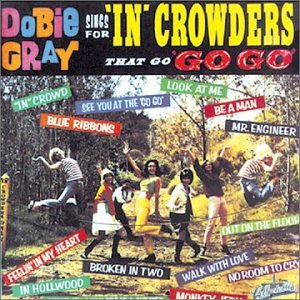
MR: There was a succession of singles after that and you recorded a couple of more things for Darian, right?
DG: Right. For Darian, I did "The 'In' Crowd," and then we did "See You At The Go-Go" and "Out On The Floor," which became huge successes overseas. Even today, "Out On The Floor" is very popular in a genre of music they call Northern Soul in the UK. I still get interviews from people because the record is a classic--it's one of those things that collectors get. When Fred's outfit went out of business, I went from there to Capitol Records, where I worked with Leon Russell. I had one or two albums on Capitol, but those things are still around.
MR: And at that point, another period of your career starts with the White Whale label. How did that deal come about?
DG: I was working at the time in the LA production of Hair, which was at the Aquarius Theatre on Sunset. I got signed to White Whale Records, but we only did a few things. We did a cover of Joe South's "Rose Garden." At the time I was in Hair, and I was also going over to A&M Records, doing demos for Paul Williams and Roger Nichols. I did "Rainy Days And Mondays," "We've Only Just Begun" and a lot of Paul's things that went on to be hits by The Carpenters. Later on, I was hired by A&M as a writer with Paul Williams' brother, Mentor Williams. A few years before, I had been down to Nashville with the intention of cutting with Bob Montgomery, but I didn't like Nashville, so I came back and kept my job in Hair, and kept writing at A&M. Then Mentor came up with this great idea for a song that became "Drift Away." I knew it was a hit at the time, but I did not have a label because White Whale really didn't want to do a full-blown project.
I was screaming and pulling my hair out because John Kay got a hold of the song, and then John Henry Kurtz had a version of it, and then Bryan Ferry had a version of it. I was just going crazy because I knew that song was a hit. So Mentor and I decided to do some things in the studio and cut some demos to shop around and see what happened. We had our little tape of a few demos including "Drift Away," and we ended up at Decca. As a matter of fact, "Drift Away" was the last gold record at Decca. The first album was called Drift Away, and that came out in '73. My roots are kind of country, and if you listen to that album, you'll hear those influences in there. We used Weldon Myrick, we used Charlie McCoy on harmonica, we used a fellow named Troy Seals on guitar, and Reggie Young came up with that beautiful lick--that very few people can play--on "Drift Away." Loving Arms came in '74, and the song "Loving Arms" off that record was another regional success, mostly overseas, and in the South. Then we also had the album Hey Dixie and all that was recorded down in Nashville.
MR: Now the two albums you had for MCA--Loving Arms and Hey Dixie--seem like they were cherry picked for hits by other artists. For instance, Eric Clapton recorded and charted "Watch Out For Lucy," Dave Mason did the same with "So High (Rock Me Baby And Roll Me Away)." It seems like maybe because of the politics at the time, some of these never saw the light of day as its for you.
DG: That's true. "Sharing The Night Together" is another good example.
MR: And you were the first to record "Rose Garden" in the earlier days. So how did you evolve from a Decca/MCA artist into a Capricorn artist?
DG: I left Los Angeles around '78 because I had made a lot of friends in Nashville, and I decided to move there because I wanted more than anything to be a writer--even more than a performer--and I had gained such a great following in the South. After three albums, I was no longer at MCA. I was managed by a fellow named Joe Sullivan, and he took me into the studio. We did some demos. Of course, I had these other records under my belt by then, and people knew about me, so it wasn't too hard of a sell. We approached Capricorn, which was based down in Georgia. Phil Walden, co-founder of Capricorn, was a good friend and big fund raiser for Jimmy Carter, which is why I got to sing the national anthem at his inaugural. So I got to that label, we chose some songs. I was working with producer Rick Hall and we got along great. Nothing really stood out from the Capricorn material, but it was fun being there because it was a small label and they gave you a bunch of attention. I had great times in Macon, Georgia, and so many great musicians played on those things. Unfortunately, it just did not happen on that label.
MR: Then Infinity came into the mix for your hit "You Can Do It."
DG: From Capricorn I went to a label called Infinity, which was a subsidiary of MCA. Ron Alexenberg was the head of that company. Ron was quite a high-flying fellow--he spent buckets of money. The New York Library did his record launching there, then we flew out to Los Angeles to live at The Hermitage, and we made some great records. I was still recording with Rick Hall as my producer, so he followed through into my Infinity days. The first album was supposed to be called Sharing The Night because all the songs were love songs, but that song was taken by Dr. Hook, so we had to change our album to Midnight Diamond. Our second album on Infinity was just called Dobie Gray, and it had some good things on it too. I did have some records of note from those albums, and one of them was "You Can Do It," which was a very big record, and there's a seven minute, disco version of "The 'In' Crowd."
MR: In a weird way, you helped fuel others' recording careers with yours.
DG: Somewhere along the way there, I just developed a knack for choosing songs that were picked by other people and became hits by other people. So there were songs that I had in my shows, and that I had recorded that went on later to become famous songs. That's the nature of the business. It was great with Infinity as long as it lasted. They had a great staff, but they were much too finite to be called "Infinity." [laughs]
MR: It was a good ride, Dobie.
DG: It was a good ride. It was fun, and it was over much too soon. I went from that label to Capitol/EMI America, which was based in Nashville, and Jim Fogelsong was the head of the label. We produced "That's One To Grow On," and "From Where I Stand"--the first album for that label was called From Where I Stand. Then, there was a second album, Love's Talkin', and it didn't do much, but my fans bought it, and there are songs on there that I still get requests to do. So I've had some success that is not widely known, but for the most part, I have had some records that people still recognize. There has been some movie stuff too--Casey's Shadow, and "Uptown Saturday Night" was for the movie by the same name. I think Gene McDaniel was supposed to do that, but he was away, so I got to do it. Whenever I see that movie, I get a surge of pride.
Miss you Dobie....
Transcribed by Ryan Gaffney
DUMP THE FILIBUSTER OR DUMP HARRY REID
After that unbelievable failure by the Senate to pass a compromise measure on background checks of gun purchasers, I feel it's finally time to start the DUMP THE FILIBUSTER OR DUMP HARRY REID campaign. Nothing is getting done, even the simplest and most sensible legislation, and this will end the logjam. It seems pretty obvious that in its current form, the filibuster has been abused for years now, denying virtually every court appointee and even the discussion of legislative initiatives, therefore furthering minority rule.
Democratic Senators should not fear the filibuster going away, their concern being obvious, losing power when they eventually are the minority party. But they need to address our current state of affairs, that's what they were elected to do, and by removing the filibuster, they empower themselves to legislate. It seems pretty simple. That means Harry Reid needs to stop naively relying on wink-y wink deals with Mitch McConnell who has no intention of corralling his minority and instead is fundraising based on the Senate leader's weakness.
Since Reid doesn't seem willing to do the obvious, I'm personally hoping DUMP THE FILIBUSTER OR DUMP HARRY REID becomes a grassroots movement. Wednesday's truly strange vote was the best example of why we need the filibuster gone and in a hurry.

